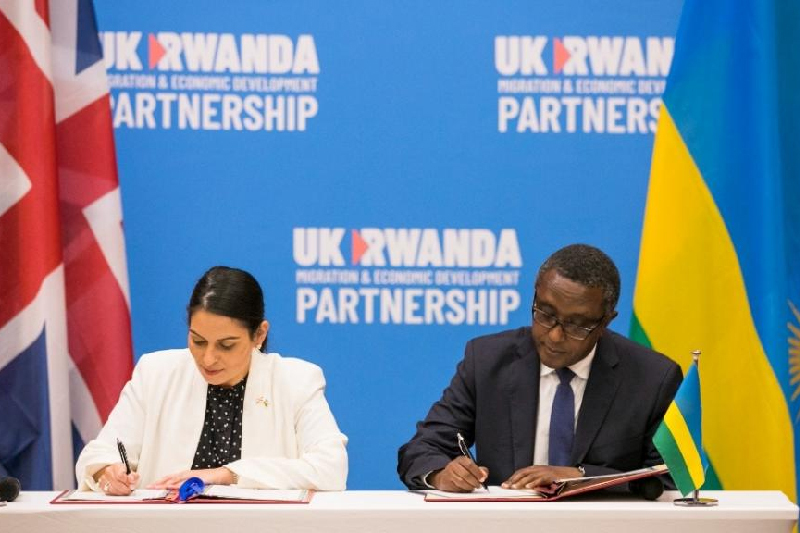
Britain’s Controversial Plan to deport asylum-seekers to Rwanda is on the verge of becoming law, despite facing fierce opposition.
Britain’s Controversial Plan to deport asylum-seekers to Rwanda is on the verge of becoming law, despite facing fierce opposition. The proposed legislation aims to overcome a U.K. Supreme Court ruling that deemed Rwanda an unsafe destination for migrants. This plan, a cornerstone of Prime Minister Rishi Sunak’s strategy to curb unauthorized migration, has been met with legal challenges and widespread criticism.
Long-Standing Agreement Faces Hurdles
The agreement between Britain and Rwanda signed two years ago, seeks to send migrants who cross the English Channel in small boats to Rwanda, where they would be permanently resettled. However, legal challenges have stalled the plan, and no deportations have occurred. The cost of this initiative has already reached at least 370 million pounds ($470 million).
Legal Battles and Diplomatic Maneuvers
In November, the U.K. Supreme Court ruled the Rwanda plan illegal due to safety concerns for asylum-seekers. In response, the two nations signed a treaty to enhance protections for migrants, allowing the British government to proceed with legislation declaring Rwanda a safe destination. The Safety of Rwanda Bill, currently before Parliament, aims to remove legal obstacles to deportation.
Criticism and Concerns – Britain’s Controversial Plan
The proposed bill has faced intense criticism from human rights groups, refugee charities, and legal experts. These critics argue that Rwanda is not a safe destination, citing reports of repression of dissent and restrictions on freedom of expression and assembly. A parliamentary watchdog has also deemed the plan incompatible with the U.K.’s human rights obligations.
Parliamentary Maneuvering
Despite approval in the House of Commons, the bill has encountered resistance in the House of Lords, where amendments have been proposed to ensure compliance with international law. The two chambers have engaged in a back-and-forth process known as parliamentary ping pong, with the Commons expected to prevail in the end.
Future Implications and Alternatives
If the bill becomes law, deportation flights to Rwanda could commence, though legal appeals may delay implementation. The British government has reportedly explored similar agreements with other countries, such as Costa Rica, Armenia, Ivory Coast, and Botswana. The opposition Labour Party, however, argues that such plans are ineffective and proposes collaborating with European partners to combat human trafficking.
As Britain seeks to implement its controversial deportation plan, the debate over the ethics and efficacy of such measures continues. While the government asserts that the Rwanda plan is necessary to stem the flow of migrants, critics argue that it violates human rights and fails to address the root causes of migration. The outcome of this legislative battle will have far-reaching implications for Britain’s approach to immigration and asylum policy.







